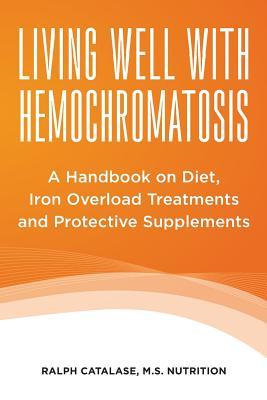Hemochromatosis afflicts millions of people worldwide, and if untreated can lead to severe organ damage and even death. A hemochromatosis diagnosis is easy to overlook, and so most sufferers must see an average of three doctors before obtaining the correct diagnosis. Physicians often provide few dietary guidelines for hemochromatosis patients that can help you keep your iron overload tendency in check, nor do they explain why certain foods can be bad or good for you.
This is a top nutritionist's approach to handling hemochromatosis and iron overload tendencies without severely impacting your lifestyle. The typical nutritional approach to managing iron overload is to reduce the number of iron rich foods in your diet, but you should not try to entirely eliminate dietary iron or you can end up with other health issues such as anemia. A better approach is to also eat foods that tend to bind iron at the same time you are eating red meats, seafood and any other iron rich foods you favor. Vitamin C and citrus fruits should also be eaten at separate times from iron rich meals, and there are also supplements you must know about that can help protect your liver, heart and other internal organs from the severe iron damage usually caused by hemochromatosis.
This is a small but important book summarizing all the guidelines you need to know about hemochromatosis that your doctor is not likely to tell you, including hemochromatosis diagnostic procedures, explanations of medical treatment options, the importance of phlebotomies and how their frequency can be reduced, lists of iron rich foods, foods that bind dietary iron or interfere with iron absorption, meal guidelines, the importance of drinking tannin-rich teas, nutritional supplements which sequester or chelate iron out of the body, the use of aspirin with hemochromatosis, and important supplements known to help prevent liver and other internal organ damage. With this dietary information, which is easy to incorporate into your lifestyle (which is the most important thing after all), you are sure to continue living well despite a diagnosis of hemochromatosis which you will have the rest of your life.
